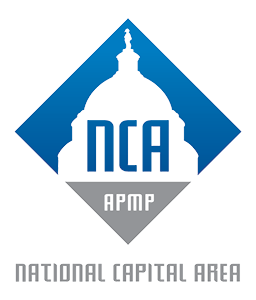Wouldn’t it be awesome if our proposals managed themselves? We’d have more time to spend on writing and reviewing and the producing the quality that buyers crave–not to mention more freedom to spend with family and friends and to pursue our passions.
Most of us proposal managers have dreamed of such a world – only to awaken to the realities that drive the need for a managed process. Process keeps our teams in sync and on schedule. It frees up time and resources to take on even more proposals. But how does a small business establish an efficient process when industry standards are geared to large business?[intense_blockquote width=”33%” rightalign=”1″]What is the goal of your proposal management process?[/intense_blockquote]
Flexibility
Don’t consider yourself a small business – respond to the size of the opportunity with the appropriately sized process. Large businesses take on larger opportunities, so they deploy more steps and milestones, for example more review cycles. Smaller opportunities typically require fewer cycles. So look at the size of the opportunity and establish the appropriate number of cycles against the deadline.
Looking to free up time and resources? Automating the coordination for each proposal, no matter the size, will save time you can invest in compliance and quality. It will also deliver the flexibility you need to scale the process to larger opportunities as you grow.
Centralize
We’ve all been there – write, review, revise, repeat. Meanwhile, we each have other responsibilities to address, like customer projects. With a small team doing so much, it’s easy to lose track of proposal deadlines. The key is keeping your team in sync and on track each step of the way. A lot of teams try to accomplish this via email. But according to Radicati Group, the total number of emails sent and received every day will exceed 293 billion in 2019. That’s a lot of email to sift through – with zero visibility into whether or not an email was read or lost in the whirlwind.
Consider centralizing your process with a secure technology. Here your team will find everything they need to succeed, from tasks and deadlines to reusable content. Meanwhile, you’ll avoid version control issues and the whopping $37B in miscommunication costs that Mitchell Communication Group cites in their recent survey.
Delegate
Managing a proposal is about coordinating a series of tasks among your team. The only difference between small and large businesses is the resources they have at their disposal. The key to building a scalable process for a small business is delegation; being able to quickly assign and easily track tasks throughout the process.
While automation helps to get the task done, delegation gets it done by someone specific with the visibility you need to manage the deadline. Is the team done writing? Reviewing? With delegation oversight, you’ll know where you are each step of the way and can quickly address bottlenecks before they become delays.
Collaboration
Today’s teams expect to work on their proposal tasks without having to travel, a cost small business executives also want to avoid. Without an easy way to share files centrally, small businesses have no choice but to rely on email. Or do they? A recent survey by AIIM reported 35 percent of organizations were “not aware” their employees were using free file sharing tools. What’s the risk?[intense_blockquote width=”33%” rightalign=”1″]The only difference between small and large businesses is the resources they have at their disposal.[/intense_blockquote]
Free file sharing tools are convenient, but they put you at risk due to lack of control, visibility, and accountability. Centralizing your content with secure technology will help you to better leverage your limited resources, anytime, anywhere, without the travel costs and risks.
What is the goal of your proposal management process? Large or small, the goal is a winning proposal delivered on time without the frustration of a last-minute sprint. Establishing a scalable process now, backed by secure collaboration technology, will enable your team to get more work done in less time and submit more winning proposals consistently.





